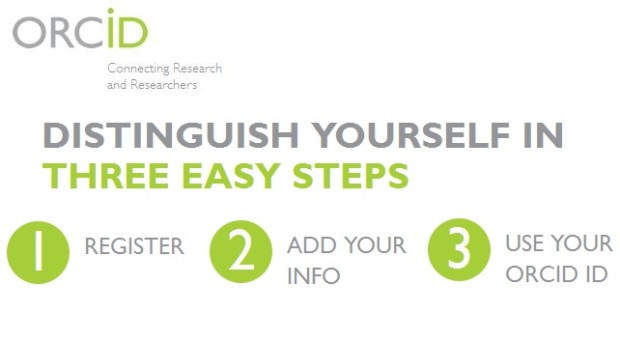
If you’re a researcher or work in a research organization, the chances are that over the past couple of years you’ve started to hear about ORCID. Maybe you’re one of the over 2million people who have already signed up for an ORCID iD, or you know colleagues who have.
Perhaps you’ve been asked to provide an ORCID iD when applying for a grant, submitting a manuscript, or when using a research information management system. Or you may have responded to our call for feedback in our first community survey last year.
So why is word spreading about ORCID? What do we do and why should you care?
Identifying people based on their name alone is impossible, in the world of research as everywhere. Researchers may share their name with hundreds – or hundreds of thousands – of others, some of whom may work in the same field, or even department.
How can you possibly reliably link researchers with their research and research organizations? Not only that, but how can you do so globally, through time, and across all subject areas?
Even individuals with less common names may change them, publish under different versions, or have their names transliterated into other alphabets. So how can you possibly reliably link researchers with their research and research organizations? Not only that, but how can you do so globally, through time, and across all subject areas?
ORCID’s vision is a world where all who participate in research, scholarship, and innovation are uniquely identified and connected to their contributions across disciplines, borders, and time.
We do this by providing individuals with an identifier (an ORCID iD) – a unique 16-digit number that they use, with their name, as they engage in research, scholarship, and innovation activities.
ORCID iDs are now used in hundreds of researcher systems globally – in university, publisher, funder, association, and repository workflows – enabling transparent and trustworthy connections between researchers, their contributions, and affiliations.
We provide this service to help people find information as well as to simplify reporting and analysis.
We provide this service to help people find information as well as to simplify reporting and analysis. Our mantra is “enter once, re-use often”, and our ultimate goal is that, by connecting information to and from ORCID records from other systems that researchers already use, rather than having them manually keying it, we can both improve the accuracy of that information and reduce the administrative burden for everyone.
Connect your work quickly and easily
Although we haven’t yet reached this nirvana, we are making progress. For example, Springer Nature announced in January that 200,000 authors have used an ORCID iD in their submission process.
Ten organizations have now built Search & Link functionality, allowing ORCID iD holders to quickly and easily connect their works (publications, datasets, and more) with their ORCID record.
ORCID also enables organizations to acknowledge peer review activities. Most importantly, last October Crossref, which creates DOIs for publications, introduced Auto-Update.
The author only needs to give permission to Crossref once and their record will be automatically updated with all future publications where they use their iD.
Now, when an author uses her/his iD at manuscript submission, for example in one of Springer Nature’s systems, that iD will be carried through the publication process, included in the metadata used for indexing papers, and posted back into their ORCID record on publication.
The author only needs to give permission to Crossref once and their record will be automatically updated with all future publications where they use their iD.
Putting control in the hands of the researchers
This element of researcher control – giving permission for changes to be made to their ORCID record – is at the heart of what we do. Individuals decide to register, what to connect to their ID, what organizations to allow access, what information to make publicly available, what to share with trusted parties, and what to keep private.
Individuals can change these settings and permissions at any time, and with great granularity (for example, making some publications public, some viewable by third parties, and some completely private).
A commitment to openness is also a core ORCID principle. We provide open tools to enable the transparent and trustworthy connections mentioned above, including a public API, an annual public data file, and open technical documentation and outreach materials.
Our presentations and outreach resources are all freely available under CC0 licenses, and our program of outreach meetings and workshops are open to all at no charge.
Our presentations and outreach resources are all freely available under CC0 licenses, and our program of outreach meetings and workshops are open to all at no charge.
Publishers, funders, universities, and other organizations are increasingly encouraging, and in some cases requiring, their researchers to use an ORCID iD.
So, if you participate in any form of research, scholarship, and innovation, make sure you register for one today. It’s quick (30 seconds), easy to use, free, and increasingly seen as essential!
It is a very excellent medical website standing for helping researchers and providing an uptodate infromation